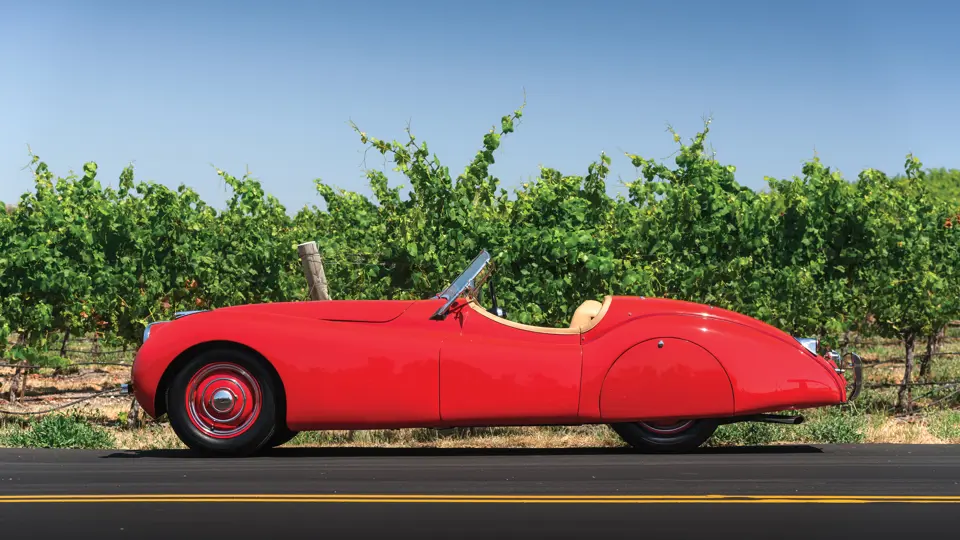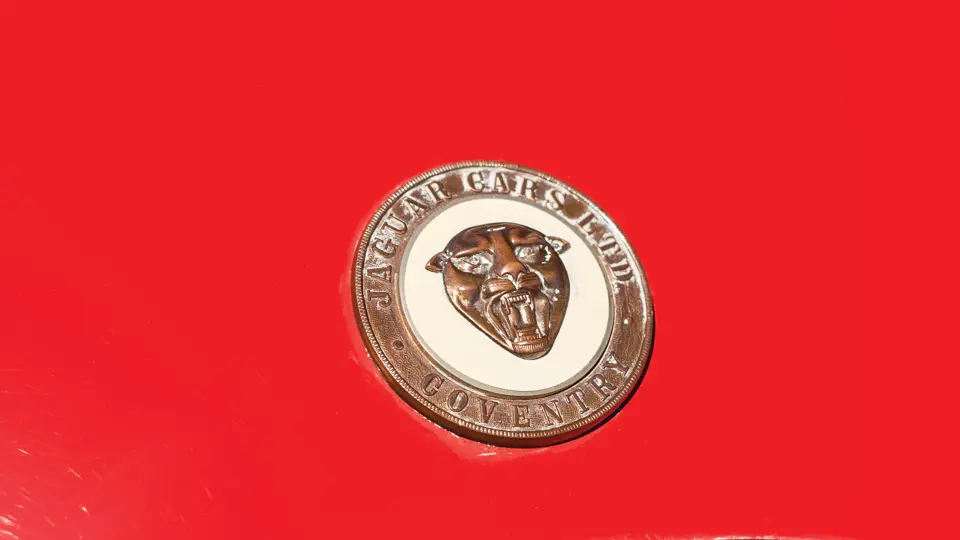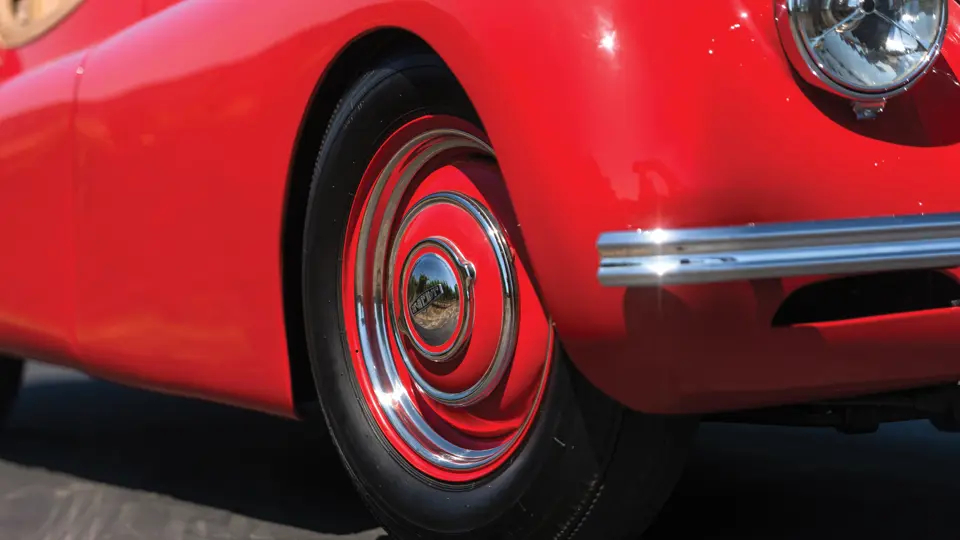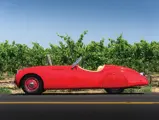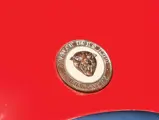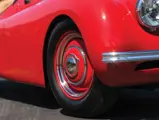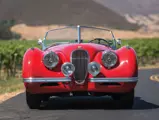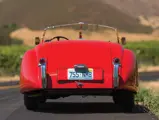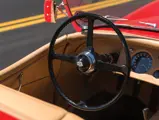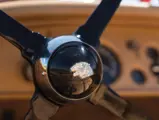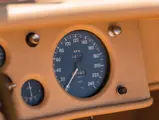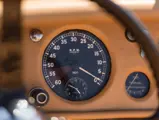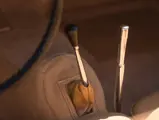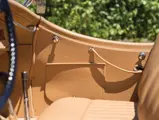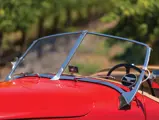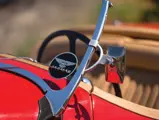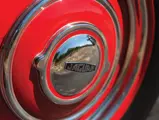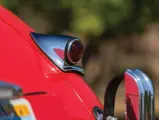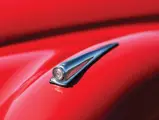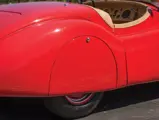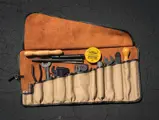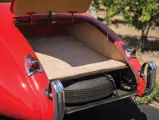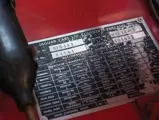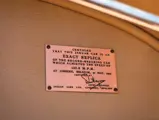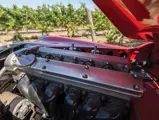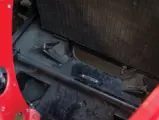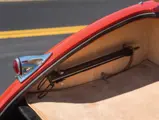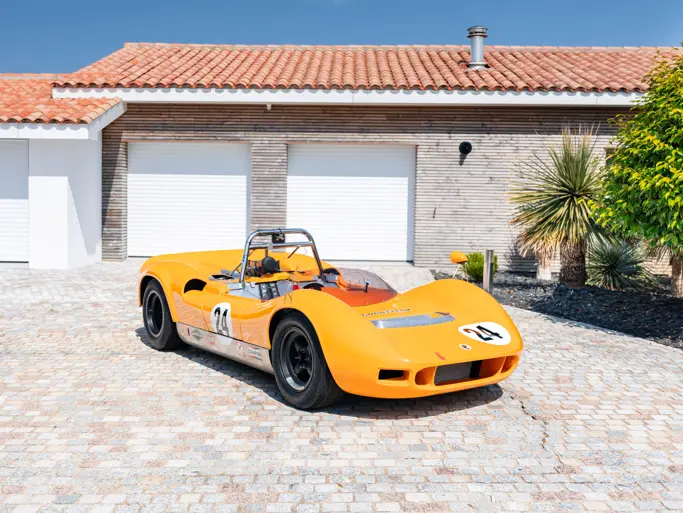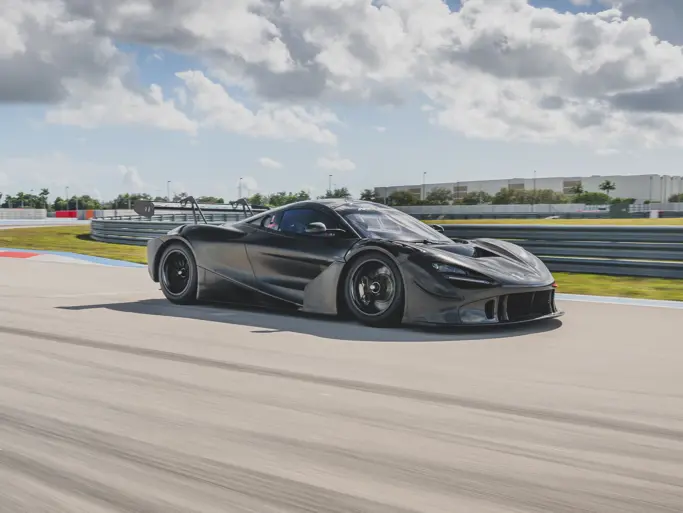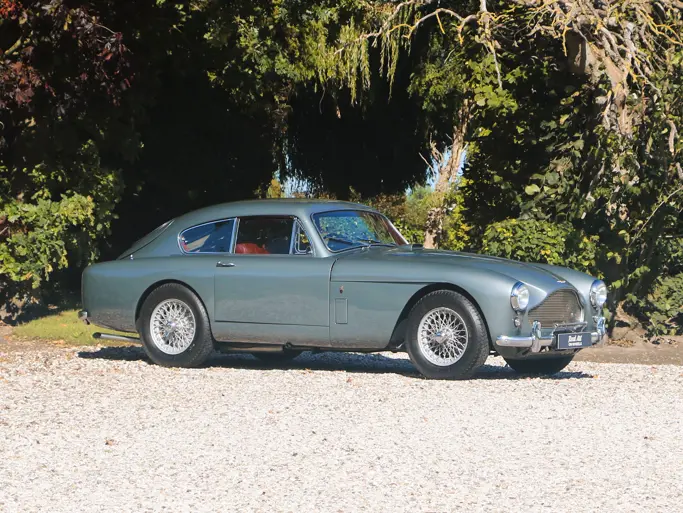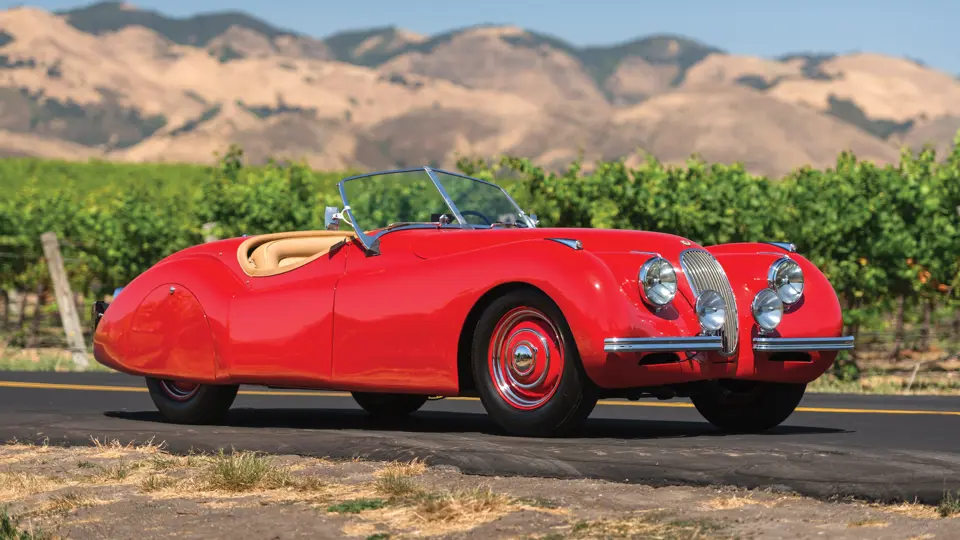
1950 Jaguar XK 120 Alloy Roadster
{{lr.item.text}}
$330,000 USD | Sold
{{bidding.lot.reserveStatusFormatted}}
- One of 242 alloy-bodied XK 120s
- Finished in the original color combination
- Former JCNA class winner as well as Best of Show recipient
- Well-maintained, recently freshened concours restoration
- Documented with its Jaguar Daimler Heritage Trust (JDHT) certificate
The first Jaguar XK 120 was built in only six weeks for London’s 1948 Earls Court Motor Show, and it created a sensation. The first cars were built with aluminum panels over a wood frame since aluminum was light and easy to work, and was not rationed like steel. William Lyons originally planned to sell only 200 XK 120s, but at only £998, orders poured in so fast that he switched to steel bodies, which could be built much faster, and in greater numbers.
In all, 7,631 XK 120 roadsters were built from 1949–1954. Of those, only 242 examples were bodied in aluminum, and these earliest XK 120s are considered to be some of the most desirable examples.
The car offered here is recognized by Jaguar Heritage as having been manufactured on 26 January 1950 and shipped on 10 February to CAMAV, the Jaguar distributor in Caracas, Venezuela, a country that at the time had its fair share of wealthy sports car enthusiasts. Finished in Red over Biscuit and Red upholstery, with a fawn soft top, its next known owner was James Caraher of Tacoma, Washington, in 1979. The XK 120 was restored under Caraher’s tenure and later sold to Robert Ames of Seattle in the late 1980s. Ames proceeded to refine the restoration and elevate the car to concours condition. Shortly thereafter it was entered in the fourth Biennial JCNA Concours at Bend, Oregon, in August 1989, winning its class with 99.36 points as well as being awarded Best of Show, as confirmed by the JCNA.
The Jaguar was acquired by the current consignor in the early 2000s and has recently been sorted by XKs Unlimited of San Luis Obispo, California, following many years of climate-controlled storage. Much of the original restoration is well-preserved and still very authentic, including the correct, rare aluminum-hub brake drums. The original engine block matches the JDHT certificate, though the cylinder head is an unstamped replacement unit. Further, the car is accompanied by a correct tool kit, air pump, and jack.
An alloy XK 120 is a figurehead of any proper sports car collection, and this is a fine example, benefiting from an interesting history and excellent enthusiast care over the last three decades.




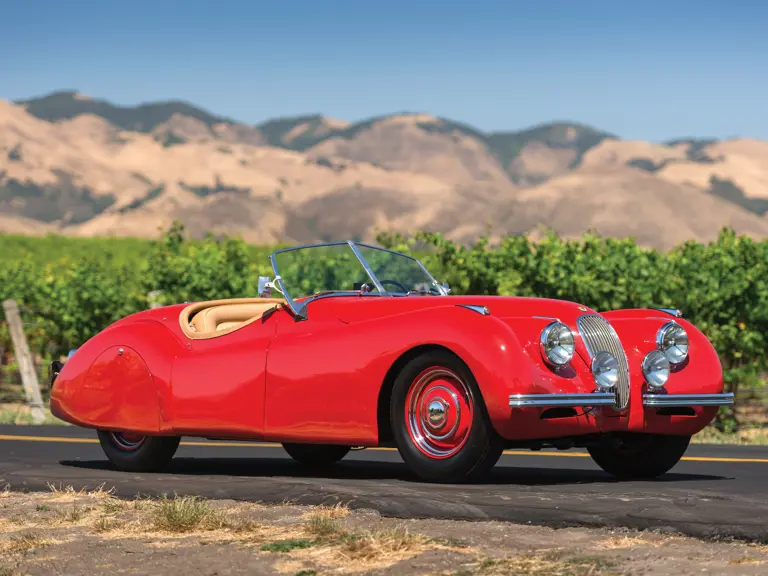
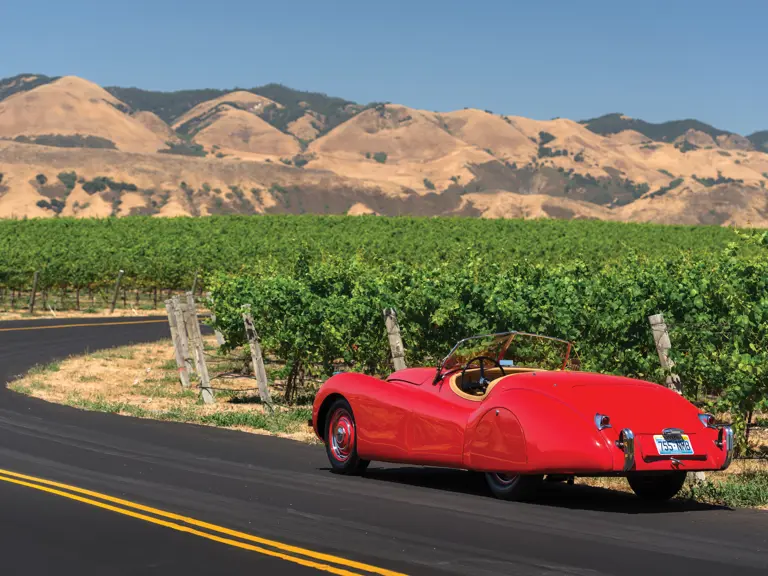
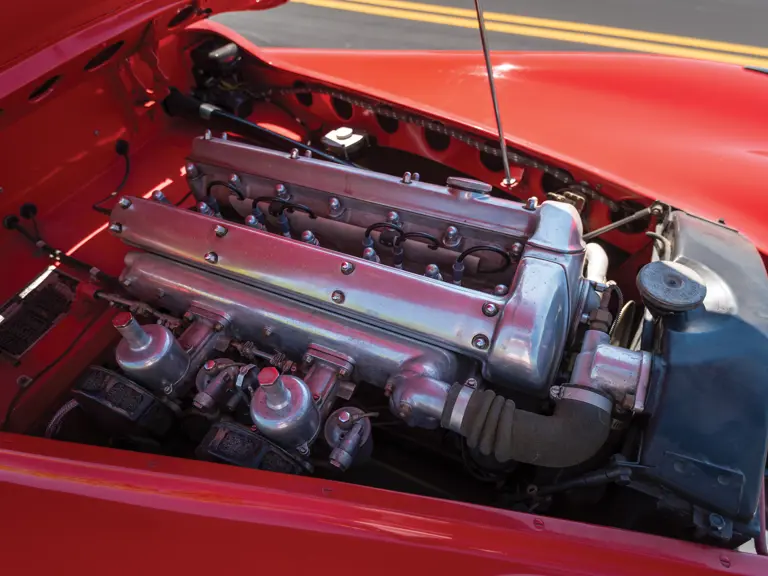
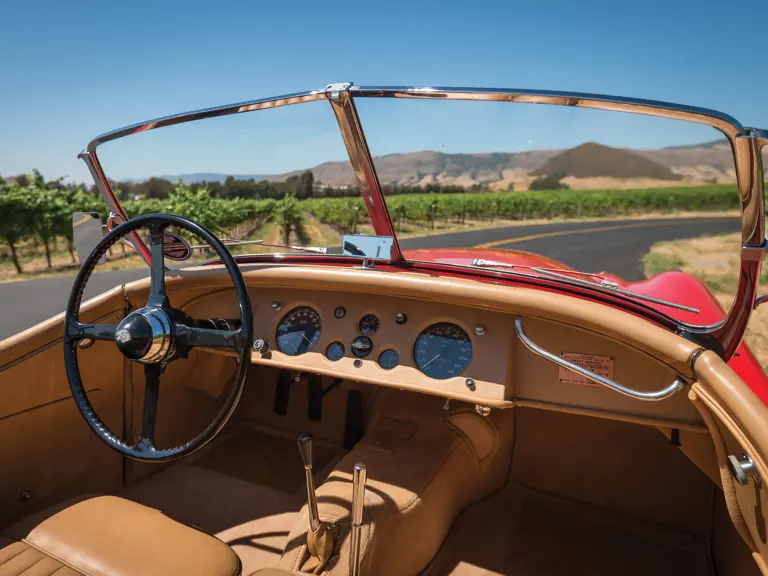
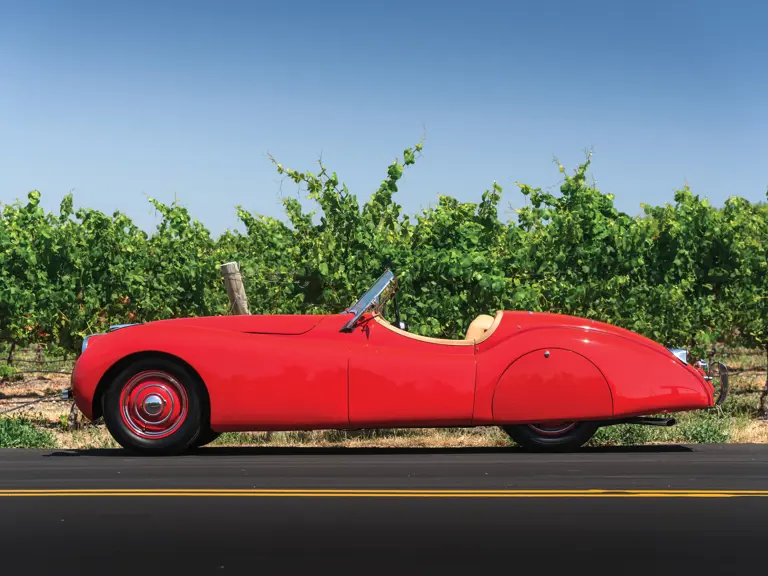
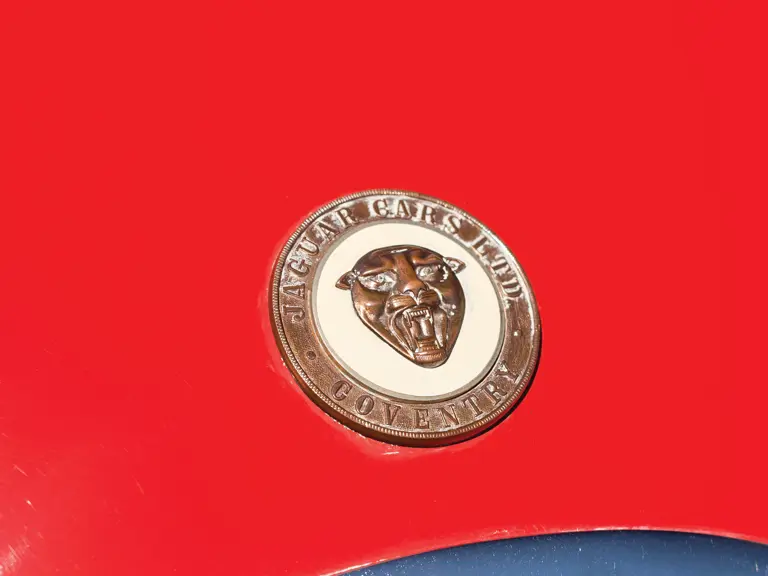
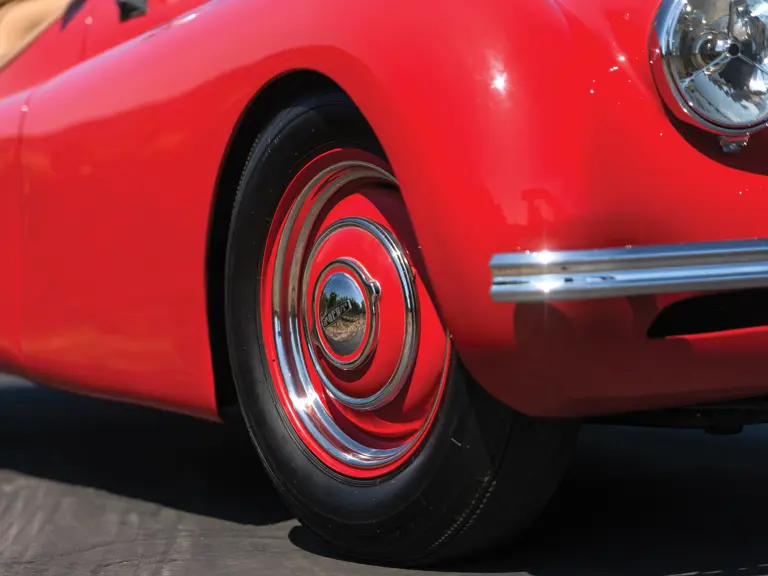
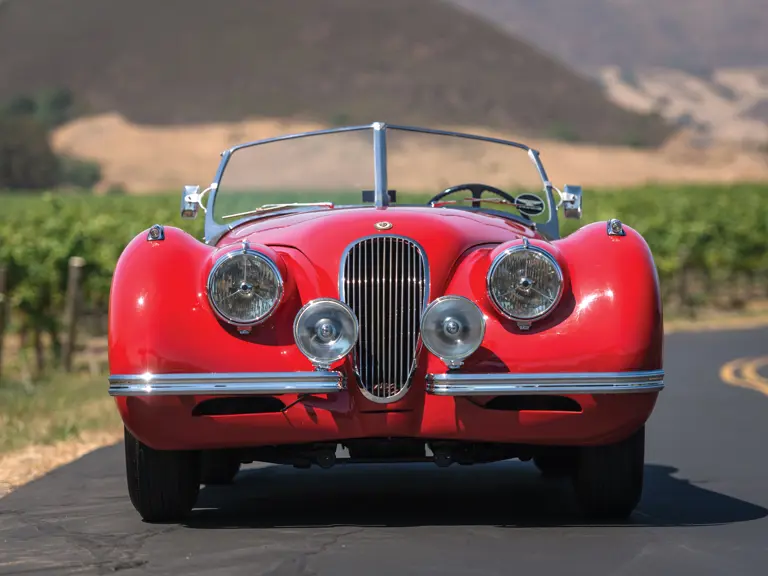
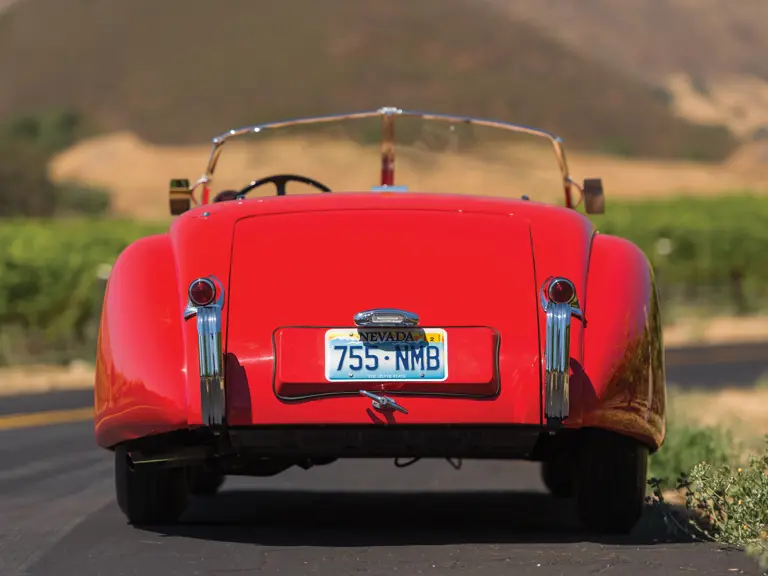
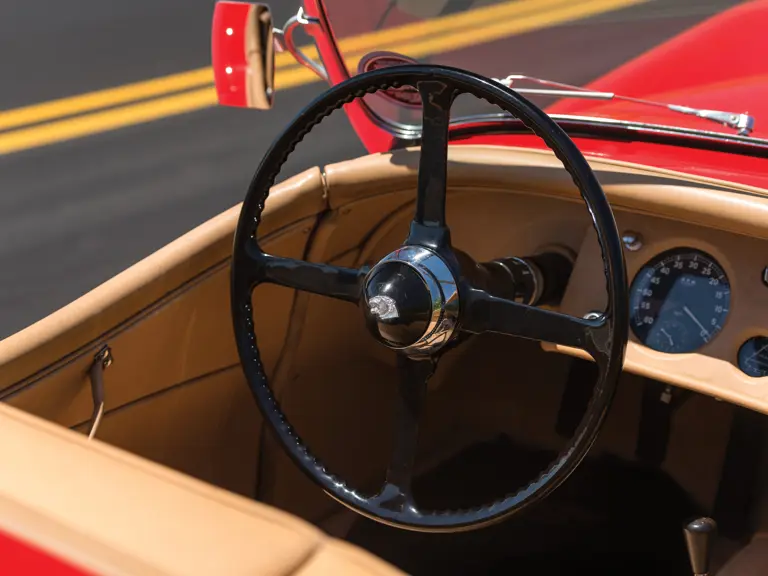
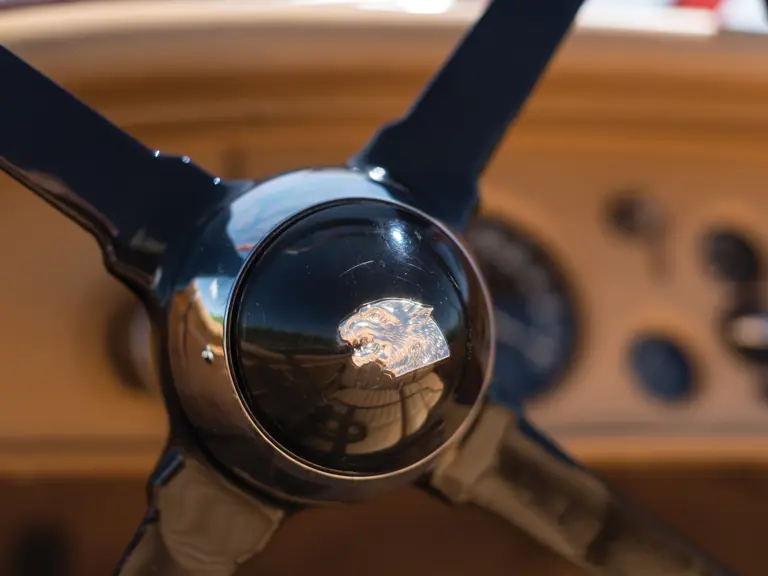
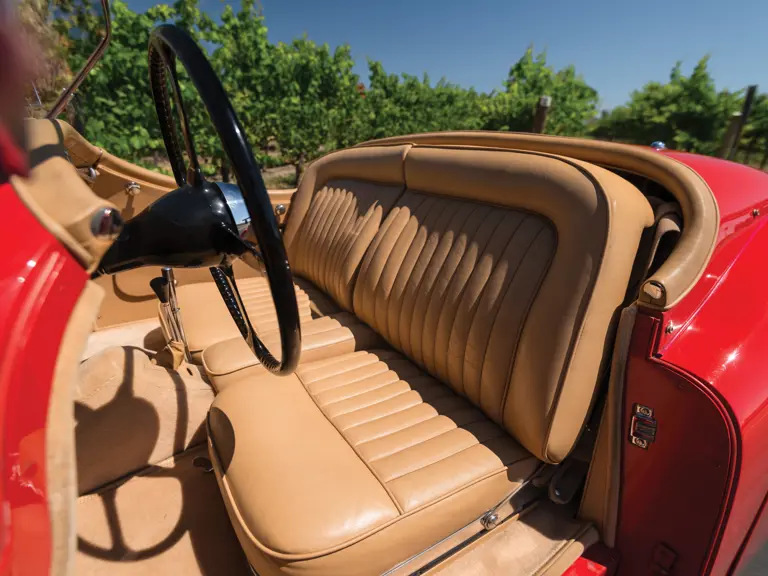
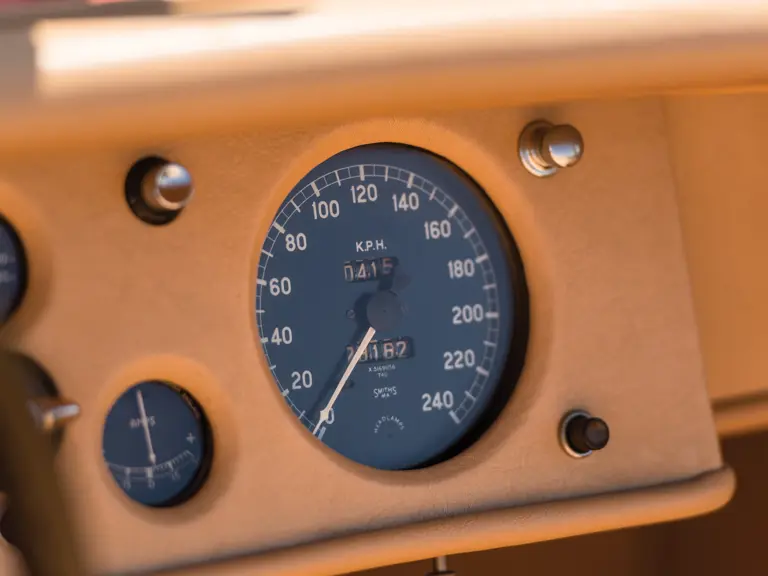
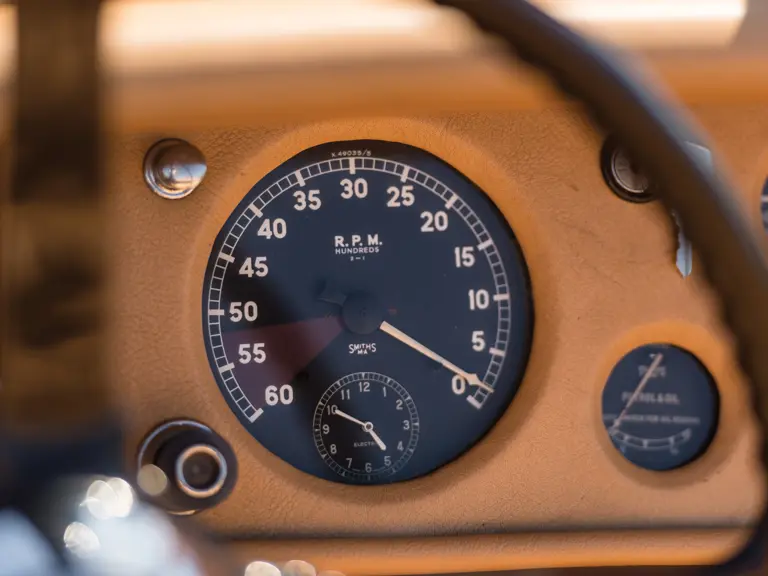
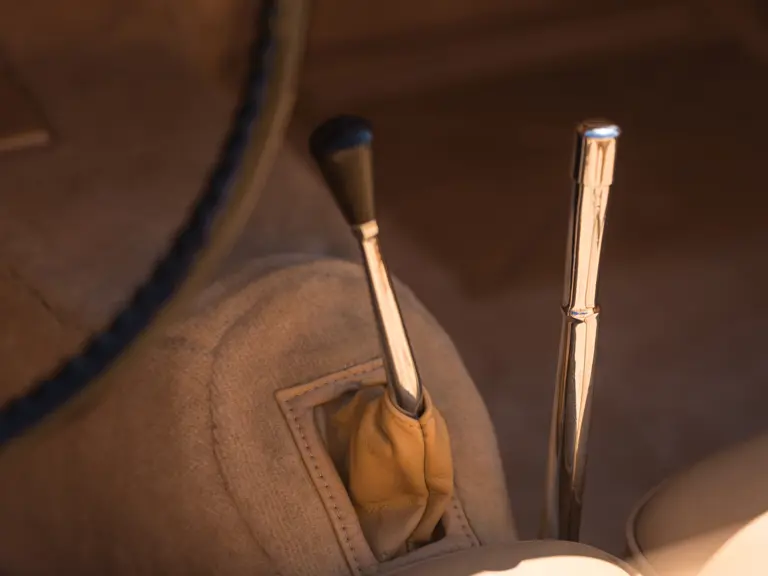
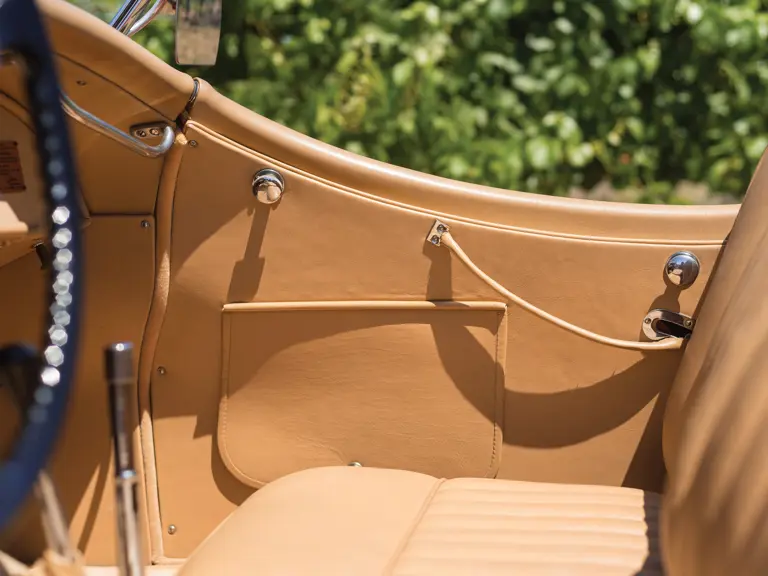
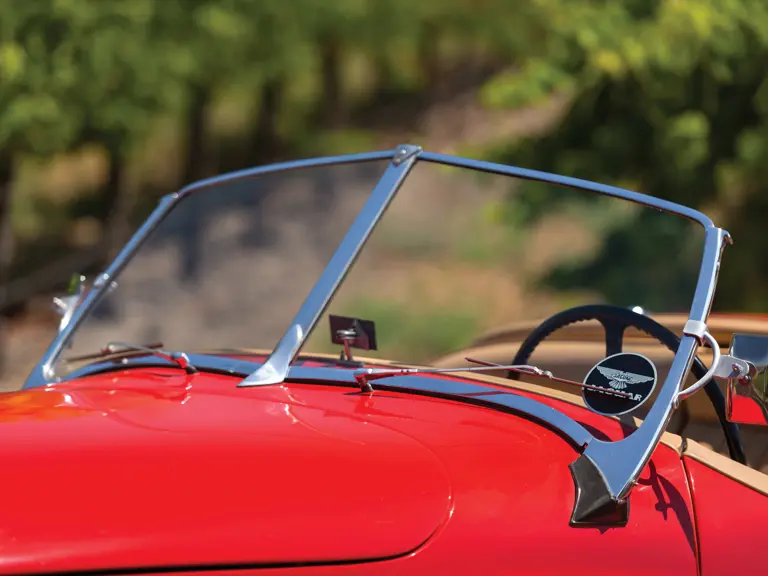
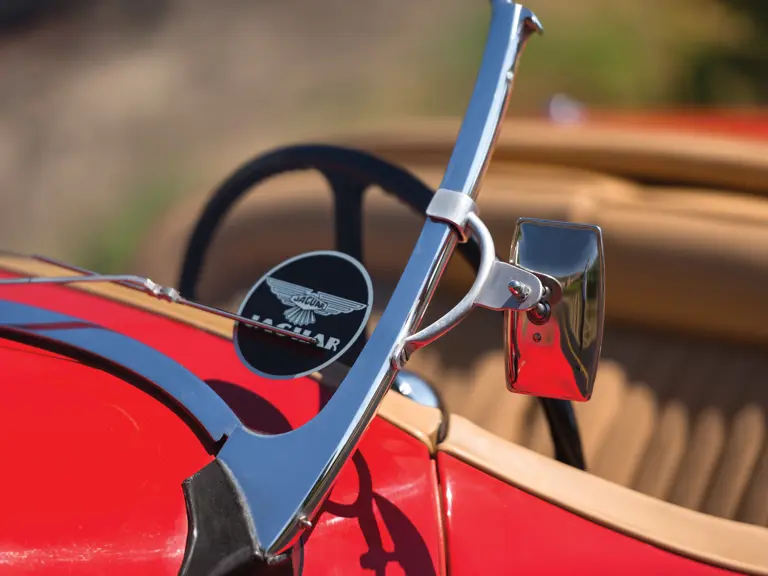
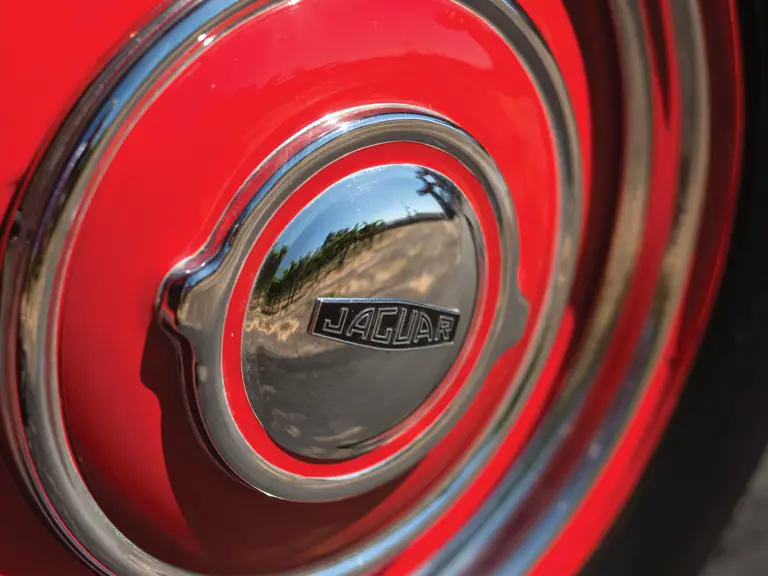
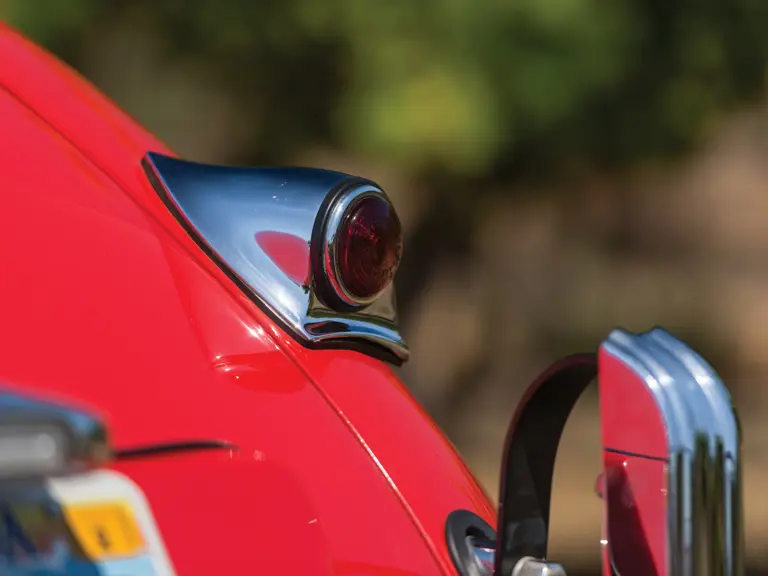

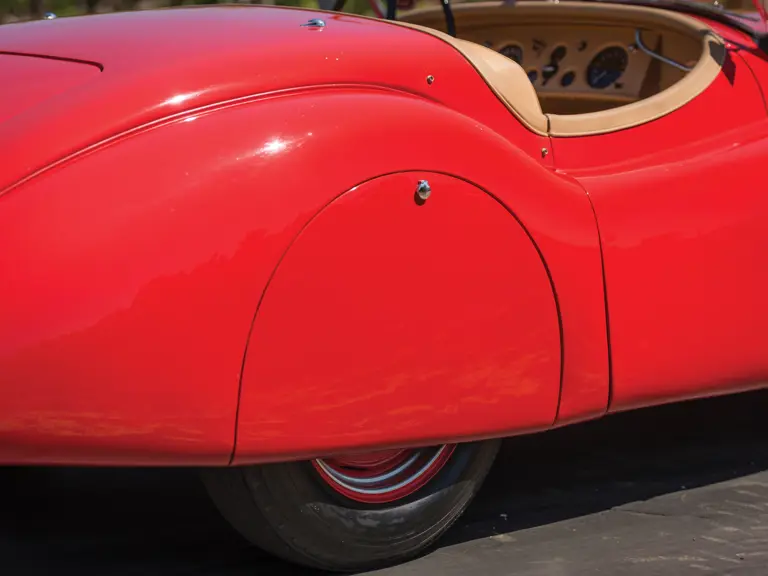
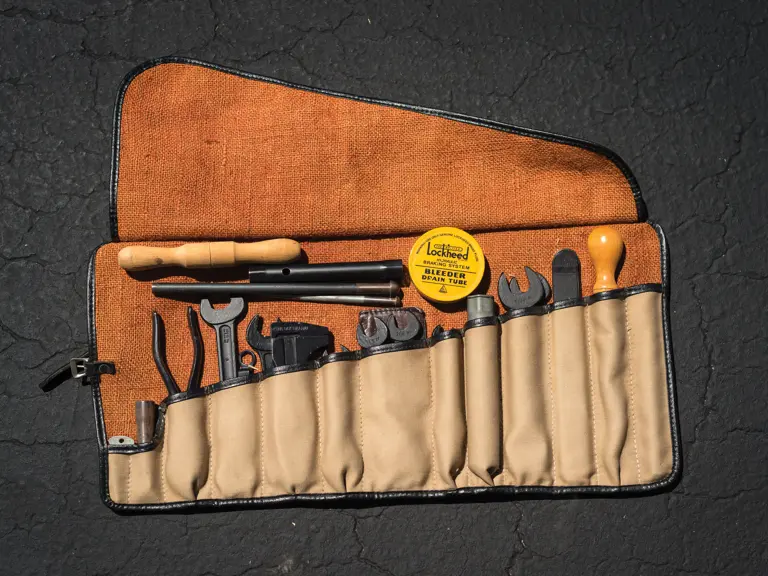
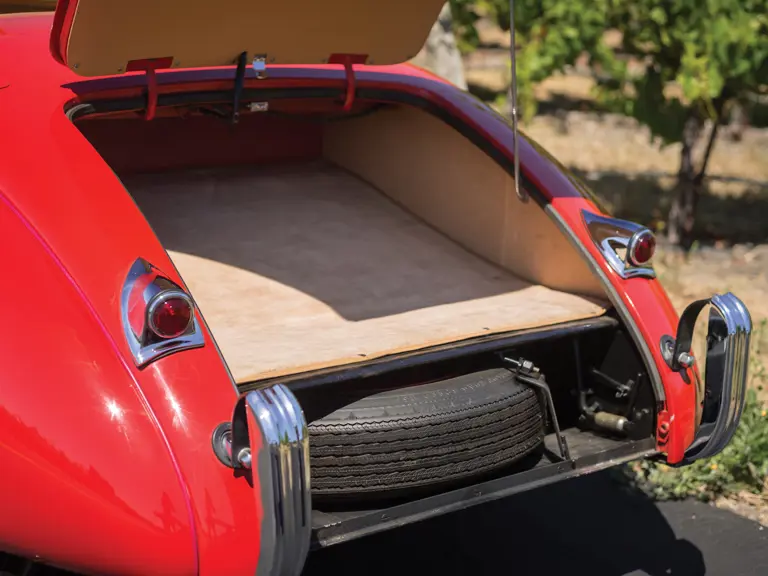
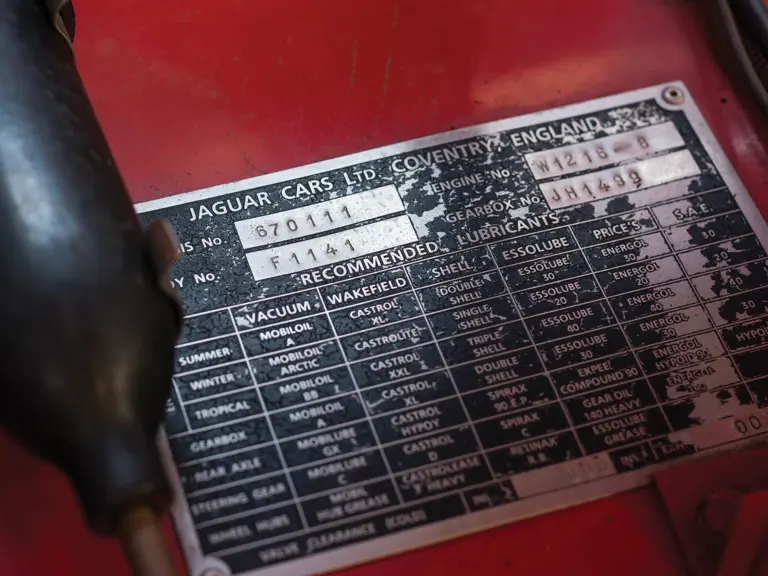
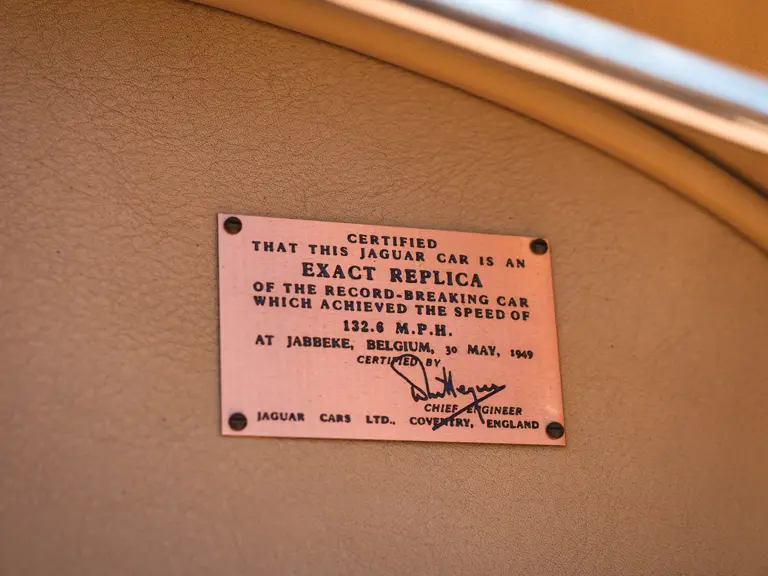
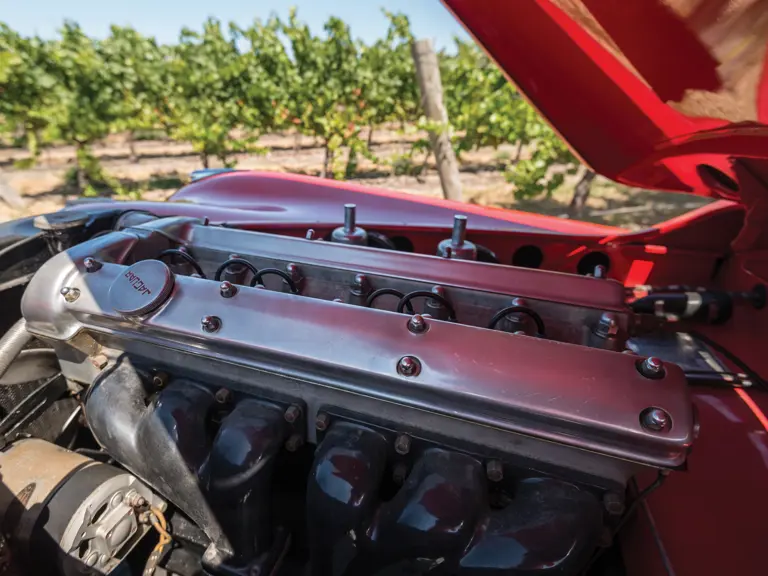
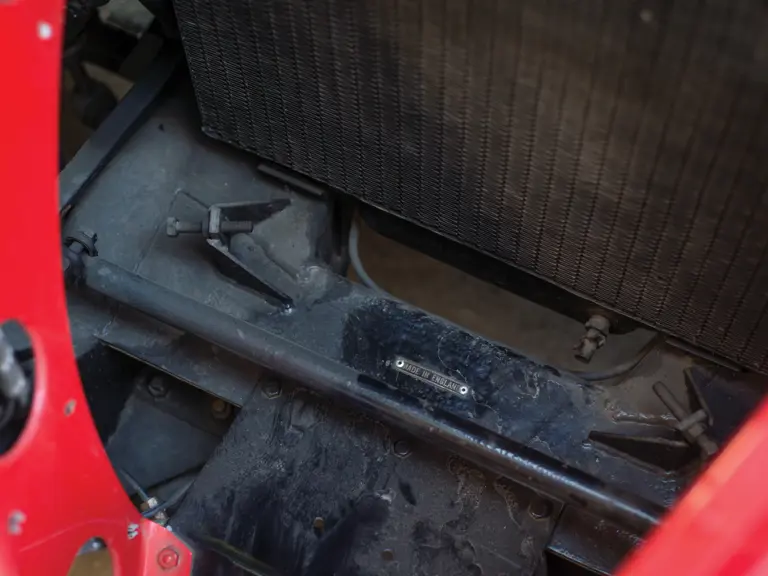
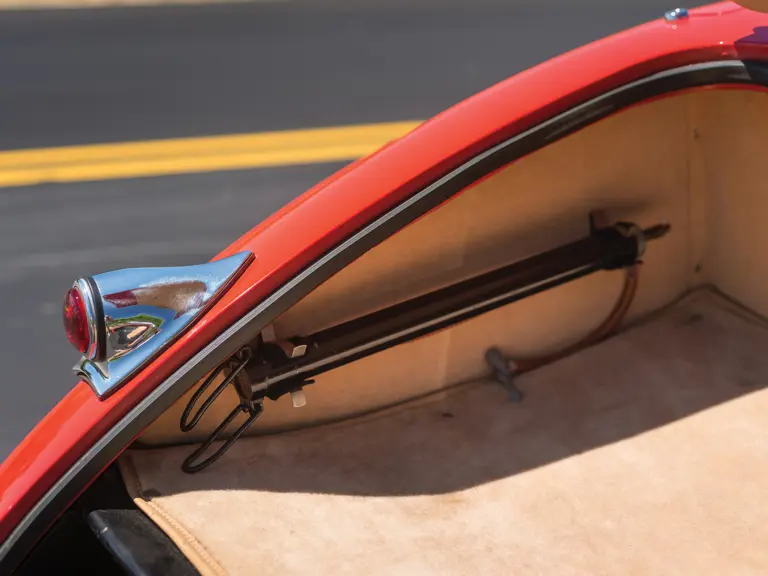
 | Monterey, California
| Monterey, California
